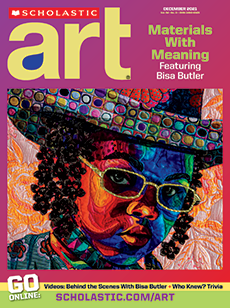Michaela Goade: I am a picture book maker and illustrator. I have the honor of illustrating stories by Indigenous authors. I’m beginning to write and illustrate my own stories as well, which has been a really fun, new experience. Additionally, I’m a graphic designer, so I also do smaller design and illustration jobs.
Core Art Standards: VA1, VA2, VA10
